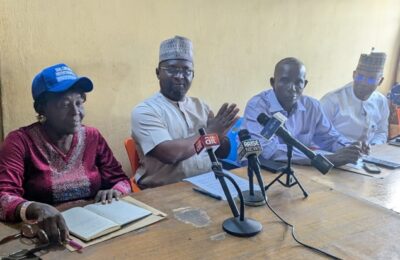Power, in its most seductive form, often disguises itself in applause. Across Nigeria’s sprawling political landscape, states and socio-political blocs — from the creeks of the Niger Delta to the dry winds of Sokoto — have begun to orchestrate a curious hymn: an overwhelming endorsement of President Bola Ahmed Tinubu’s second tenure. The optics are grand, the voices synchronized, yet underneath this ballet of support lies a question too heavy to ignore: what is the true cost of this consensus? In a nation battered by economic tumult, institutional fatigue, and social despondency, is the loud chorus of continuity genuine faith or coerced loyalty?
The Nigerian political terrain has become an elaborate theatre where reality is often drowned by rehearsed scripts. These sweeping endorsements come at a time when inflation bites through the marrow, when hunger no longer knocks but has taken residence. In the face of this hardship, one cannot help but wonder if the second term movement is not a political narcotic meant to sedate dissent and preempt accountability. We remember the 2023 promises—bold, brimming with reformist fervor—but today, we see queues at petrol stations, crippled purchasing power, and an exodus of talents seeking oxygen outside Nigeria’s suffocated borders.
To endorse a leader amid escalating poverty and economic paralysis is to raise a monument to irony. For many, democracy has ceased to be a sacred covenant; it has become a tradeable commodity auctioned by ethnic brokers, religious opportunists, and compromised elites. The opposition, once boisterous and idealistic, now appears emasculated. The judiciary, a vital arbiter of justice, often whispers when it should thunder. And the youth—our most potent force—now mutter in corners or flee with suitcases of frustration. Democracy, once a breathing institution, is being embalmed by a desperate desire to consolidate power at all costs.
This climate of exaggerated endorsement bears the fingerprints of a subtle authoritarianism—a political climate where dissent is criminalized, and patriotism is redefined as compliance. If politics is to be the engine of societal transformation, then its soul must be rooted in truth, not tyranny veiled as popularity. As Dr. Paul Enenche warned, “When lies sit on thrones, truth goes into exile.” Nigeria risks becoming a nation where truth is exiled, and every cry for help is drowned in the drums of praise-singing. A nation cannot claim maturity when it rewards mediocrity with another mandate.
There is a deep moral injury inflicted when spiritual institutions, traditional councils, and civil society begin to sing in unison without critical interrogation. When prophets become palace jesters, and intellectuals serve as echo chambers of power, then the soul of a nation is bleeding. Where are the moral watchdogs? Where are the bold thinkers? Instead, we are left with a gallery of applause, where every dissonant voice is met with disdain or silence. This is not democratic vibrancy; it is orchestrated paralysis.
What Nigeria faces today is not merely an economic recession, but a moral recession, a leadership vacuum disguised in executive pageantry. Tinubu’s first term has so far been characterized by subsidy removals that deepened hunger, policy somersaults that disoriented the market, and a security apparatus that continues to chase shadows. To move into a second term without an honest audit of these failures is to fertilize impunity. It sends a dangerous message: that power, once attained, is permanent; that the people’s pain is a fair price for political continuity.
And yet, amid all this, the Nigerian spirit is not fully extinguished. Beneath the silence, resistance brews. The youth may be quiet, but they are observant. The hungry may not protest today, but hunger is a patient teacher. The churches and mosques may preach peace, but even sacred spaces are beginning to groan. If the president must return, let it be by virtue of demonstrable performance, not political blackmail. Let it be a return born of reform, not rebranding. Let it be a second tenure earned, not enthroned.
History is watching. The world is observing. And the future is taking notes. To endorse Tinubu blindly is not just to gamble with the next four years—it is to mortgage our national conscience. The Igala say, “The hunter who follows a lion into the bush without a plan will soon become meat.” Nigeria must not follow political fervor without introspection. We must count the cost of our choices before the cost counts us. For in the words of the Master, “You shall know the truth, and the truth shall make you free.”
– Inah Boniface Ocholi writes from Ayah – Igalamela/Odolu LGA, Kogi state.
08152094428 (SMS Only)




